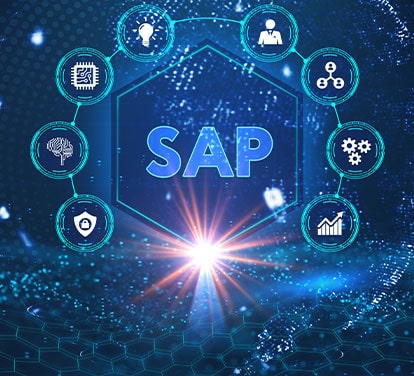Revenue Management, Pricing and Billing Solutions
Introduction: Revenue management oracle cloud
Oracle's Revenue Management Cloud Service product, also called RMCS, has gained a significant pace over the last few years. Oracle RMCS is part of the Oracle cloud financial suite, allowing customers to manage contracts and performance obligations to quickly help them address the revenue recognition guidelines as per ASC 606 and IFRS 15 accounting standards.
Oracle RMCS is inherently integrated with other cloud applications like Distributed Order Orchestration (DOO), Service Contracts, Projects, Receivables, and Service Contracts to pull the inbound data and create Revenue Contracts. On the other hand, it is integrated with General Ledger to push outbound revenue accounting entries to make journal entries.
This blog will provide an overview of third-party integration with RMCS.
Prerequisites for Third-Party Integration and standalone selling prices & Revenue Data
Before you work on getting the third-party source data into RMCS, you need to have the following reference data in place –
- Enterprise Structures – such as legal entities, ledgers, and business units
- Customers – Party, Party Sites, Customer Account, Customer Account Sites, etc.
- Inventory Items
- Define a Trading Community Source System
- Define Spoke System Relationship between Items and Source System
If your source data, i.e., contract data or billing data, is captured in a third-party system and wish to bring it into RMCS, then the system provides two options to integrate this data into Oracle RMCS –
1. Spreadsheet Integration using FBDI Templates
RMCS provides two FBDI data templates to load source data. The first is the Revenue Basis Data Import template used to load the contract data with headers, lines, and sublines. The second is the Billing Data Import template used to load billing data into RMCS. The customer must manually fill the data into these templates as per the instructions provided in the template and generate the zip file. The zip file is then placed into the UCM server through the File import and Export utility. Once the file is placed into the UCM server, run the "Load Interface File for Import" program to load the file data into RMCS interface tables.
The contract data is loaded into the following three interface tables –
- VRM_SOURCE_DOCUMENTS (Contract Header Information)
- VRM_SOURCE_DOC_LINES (Contract Line Information)
- VRM_SOURCE_DOC_SUB_LINES (Satisfaction Event Information)
The billing data is loaded into the below interface table –
- VRM_BILLING_LINE_DETAILS (Billing Information)
Once you sign in to cloud the data and personalized content is loaded and into the interface tables, run the "Validate Customer Contract Source Data" program. This program verifies the data into the interface table to ensure the data is all good to create the contract. If there are any errors, it is flagged with an error message that can be viewed and corrected using the "Correct Contract Document Errors in Spreadsheet" option.

After validating the customer contract data in the interface tables, the next step is to run the process "Identify Customer Contracts." This process creates revenue contracts with performance obligations, promise details, and satisfaction events. It also recognizes revenue if performance obligations are satisfied through satisfaction events.
The process "Recognize Revenue of Customer Contracts" generates the journal entries to account for the billing of performance obligations.

2. Custom Program Integration
In this method, the developer search and writes a custom program to pull the data from the source system and creates the data files for contract and billing. The custom program then calls the Web API to put these two data files into the Oracle UCM server, the Oracle cloud's entry point. After the file is placed in the UCM server, the same processes are run to load the file data into the interface table, i.e., "Load Interface File for Import," and verify the contract data loaded into the interface table, i.e., "Validate Customer Contract Source Data." The next step is to run the "Identify Customer Contracts" program to create Revenue Contracts, Performance Obligations, and Satisfaction Events. This process also recognizes revenue if obligations are getting satisfied.

Outbound Integration
Oracle Revenue Management generates accounting information through Sub Ledger Accounting (SLA) Engine of oracle account to create journals in Revenue Management and transfer it to General Ledger. Like other Sub Ledger modules, Create Accounting program in the Revenue Management module, which will run to generate the accounting journals and transfer them to GL. Suppose you have implemented General Ledger in Oracle Cloud. Then, you do not need any integration to transfer accounting entries to GL. Still, if you have Oracle EBS or a third-party GL system, you need to create a data file for accounting entries and import this data file into the target system to create Revenue Accounting journals.

How Jade can help you
If you plan to implement Oracle Revenue Management Cloud Service (RMCS) to automate your revenue recognition process following ASC 606 standard, reach out to us. We have experience implementing RMCS with various customers and have a pool of certified and industry expert consultants who can make your implementation journey smooth and delightful. As a consulting partner and service provider, Jade Global has served more than 350+ customers and helped them implement Cloud, On-premises, and homegrown applications.













